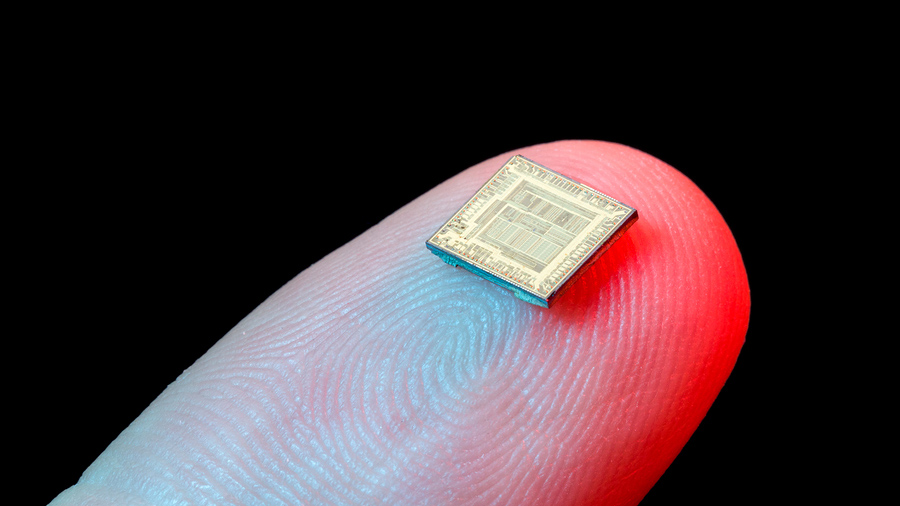Have you sometimes forgotten your access card when you get to work? For some employees of a Flemish company, this is no longer a problem. New Fusion has equipped its employees with a chip that allows keyless entry of doors.
The idea came from an employee who would often forget his badge, says Vincent Nys, spokesperson for New Fusion, a digital marketing company near to Antwerp in Belgium.
The RFID chip — for Radio Frequency Identification — is installed under the skin, between the thumb and the index finger. It is first sterilized before being injected using a gun with a large needle. The microprocessor, which is the size of a grain of rice, contains the wearer’s personal data which can be read by a smartphone. Each chip costs one hundred euros, or close to $150.
Eight of the company’s twelve employees volunteered for the experiment. For most of them, it’s a gadget that makes their life easier on the job. This is because in addition to opening the company’s front door, the RFID chip also lets them log on to their computer without a password.
The RFID chip is a controversial technology
If not all of the New Fusion employees decided to trade the badge for the RFID chip, it’s because some of them raised concerns about this new sub-cutaneous technology.
Because the RFID chip has a memory it is possible, in particular, to know employees’ arrival and departure times, and therefore to measure how much time they spend at work. In other words, it can monitor their comings and goings and analyze their performance on the job.
It all raises numerous ethical and legal questions, particularly on the protection of personal data and the physical integrity of the chipped people.
Even though New Fusion refuses to spy on its employees, the Belgian Human Rights League has sounded the alarm. According to its president Alexis Deswaef, such a system has many slippery slopes.
However, subcutaneous implantation of RFID chips is legal in Belgium. And as far as protection of privacy is concerned, Belgian law has a clause stipulating that such protection can be excluded “when the person concerned has undoubtedly given his consent.”
Is New Fusion ahead of its time, or is it just a brilliant publicity stunt for the company? Only time will tell….
